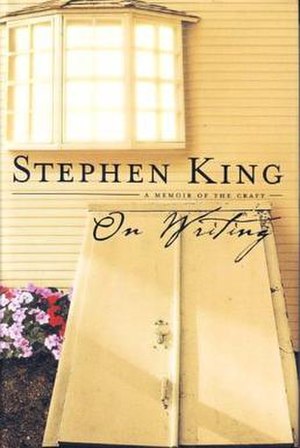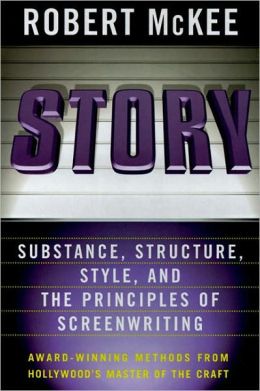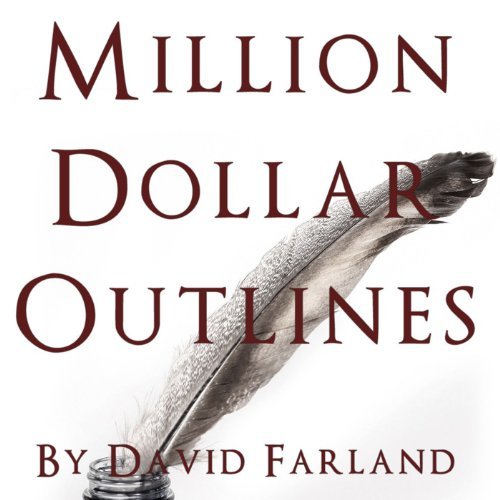Books about books
It has been a while, and I am almost ready for a big announcement, but for this first post in over 6 months I wanted to talk about writing advice books.
A while back I read (when I say read, I of course mean listen--see my posts about audio books and my love thereof) Mr. King's autobiography masquerading as a guide to writing, 'On Writing'
A great book, and at the time it really pandered to my desire to stay a Pantster (as in fly by the seat of), or as G.R.R Martin calls us, Gardeners. Mr. King encourages us to sit down, lock the door, and write. Hopefully if you don't get hit by a car, you might come out at some point with a finished manuscript.
But like me, that might take more years that you are willing to admit.
This year, in a act I can only call madness, I decided to re-write my first two novels, and it was clear that my usual start-at-page-one-and-work-my-way-through approach was not going to cut it.
I needed more help. I had put off reading any other 'how to write' books mostly because I deep down knew they would tell me what I already knew: Get serious. Get a plan. Work your shit out.
When I teach media I even make my students read some of the cannon of how-to books on writing. So for my first step, I decided to undo my hypocrisy and finally read Robert McKee's Story: Substance, Structure, Style and the Principles of Screenwriting. Phew. Even saying it is a mouthful.
Hot on the heels of this bible, I moved onto Sol Stein's
Stein on Writing: A Master Editor Shares His Craft, Techniques, and Strategies. Are these guys just trying to prove a point with their titles or what? Yes, we get it, you can words.
And then to round off the list, i'm halfway through Dave Farland's Million Dollar Outlines. Which, while not as long a title, makes up for it with actually admitting what the other two hint at.
And what have I learned so far? Everything is in threes, a character is only as important as the argument they represent, and conflict, conflict, conflict. is king.
You could not get a clearer argument against Kishotenketsu if you made a child watch My Neighbour Totoro on repeat until their eyes bled. McKee comes out and says that a story is nothing but conflict, much the same way that a song is nothing but sound. Stein agrees, just a little more poetically, and Farland goes as far as spelling it out with examples from his own book. And of course they are all right. Conflict is a part of life. Yes, we love to read and watch movies because seeing the consequences of other people in conflict is cathartic. (McKee strictly forbids alliteration--my bad)
And it works. I think Stein kinda laments that this is the case, McKee tries desperately to categorise films that sit outside the three act structure as contrary works that only exist because of it, whereas Farland, when not using examples from his own books, tries to convince us that 'Live free and Die Hard' was a brilliant work of art because of its carefully constructed try-fail cycles.
And again, they are all correct, (except Farland) but what i've come to realise is that it all depends on your point of view. (not your character POV, of which McKee commands you to limit to as few as possible, while Farland says to multiply so as to reach as wide an audience as possible, just like he did in one of his novels)
What I mean by point of view, is that as writers, I think we need to decide philosophically what we stand for. I don't mean that we need to inject a 'theme' into our work--indeed I agree with Stein that this must come organically only once you have finished a few drafts, as themes are answers to questions too complex to answer any other way.
But we must have a philosophy--a hunch that we know the way the world really is or could be. This obsession with conflict is so pervasive, no one sees it as what it is: one point of view, one philosophy of meaning. McKee even admits that films and stories are the lie we tell ourselves, the fantasies to make the world make sense. And this goes all the way back to Aristotle.
But we can do more, right? If all we do is chase a demographic that demands x amount of romantic 'beats' followed by a try-fail cycle until the act three reversal, then what have we proven? People like sugar. You put sugar in things and they will buy them. People consume things that make them happy, ergo, sugar is good.
I'm reading Harry Potter to my son at the moment. (real read this time, and i'm trying my best to be Stephen Fry) We are up to Goblet of fire, and it is clear to me why the series is the epitome of a Million Dollar Outline. That doesn't mean its any good. But like the bowls of icecream I bribe my son with to finish his roast lamb and broccoli, i'll keep dishing them up, in the hope that he develops an appetite for something better.
Do I have an answer. I would be an even bigger hypocrite to say I do. My novels are rife with conflict, and I can't help but see my emotional beats and have to admit that injecting a 'time bomb' in chapter 23 really would pick up the pace. What I can say is that i'm trying for something bigger. The micro might seem to be noting but conflict, but I promise that when you step back, some other force is at work, and hopefully, other lessons will be learned.
T.B
A while back I read (when I say read, I of course mean listen--see my posts about audio books and my love thereof) Mr. King's autobiography masquerading as a guide to writing, 'On Writing'
A great book, and at the time it really pandered to my desire to stay a Pantster (as in fly by the seat of), or as G.R.R Martin calls us, Gardeners. Mr. King encourages us to sit down, lock the door, and write. Hopefully if you don't get hit by a car, you might come out at some point with a finished manuscript.
But like me, that might take more years that you are willing to admit.
This year, in a act I can only call madness, I decided to re-write my first two novels, and it was clear that my usual start-at-page-one-and-work-my-way-through approach was not going to cut it.
I needed more help. I had put off reading any other 'how to write' books mostly because I deep down knew they would tell me what I already knew: Get serious. Get a plan. Work your shit out.
When I teach media I even make my students read some of the cannon of how-to books on writing. So for my first step, I decided to undo my hypocrisy and finally read Robert McKee's Story: Substance, Structure, Style and the Principles of Screenwriting. Phew. Even saying it is a mouthful.
Hot on the heels of this bible, I moved onto Sol Stein's
Stein on Writing: A Master Editor Shares His Craft, Techniques, and Strategies. Are these guys just trying to prove a point with their titles or what? Yes, we get it, you can words.
And then to round off the list, i'm halfway through Dave Farland's Million Dollar Outlines. Which, while not as long a title, makes up for it with actually admitting what the other two hint at.
And what have I learned so far? Everything is in threes, a character is only as important as the argument they represent, and conflict, conflict, conflict. is king.
You could not get a clearer argument against Kishotenketsu if you made a child watch My Neighbour Totoro on repeat until their eyes bled. McKee comes out and says that a story is nothing but conflict, much the same way that a song is nothing but sound. Stein agrees, just a little more poetically, and Farland goes as far as spelling it out with examples from his own book. And of course they are all right. Conflict is a part of life. Yes, we love to read and watch movies because seeing the consequences of other people in conflict is cathartic. (McKee strictly forbids alliteration--my bad)
And it works. I think Stein kinda laments that this is the case, McKee tries desperately to categorise films that sit outside the three act structure as contrary works that only exist because of it, whereas Farland, when not using examples from his own books, tries to convince us that 'Live free and Die Hard' was a brilliant work of art because of its carefully constructed try-fail cycles.
And again, they are all correct, (except Farland) but what i've come to realise is that it all depends on your point of view. (not your character POV, of which McKee commands you to limit to as few as possible, while Farland says to multiply so as to reach as wide an audience as possible, just like he did in one of his novels)
What I mean by point of view, is that as writers, I think we need to decide philosophically what we stand for. I don't mean that we need to inject a 'theme' into our work--indeed I agree with Stein that this must come organically only once you have finished a few drafts, as themes are answers to questions too complex to answer any other way.
But we must have a philosophy--a hunch that we know the way the world really is or could be. This obsession with conflict is so pervasive, no one sees it as what it is: one point of view, one philosophy of meaning. McKee even admits that films and stories are the lie we tell ourselves, the fantasies to make the world make sense. And this goes all the way back to Aristotle.
But we can do more, right? If all we do is chase a demographic that demands x amount of romantic 'beats' followed by a try-fail cycle until the act three reversal, then what have we proven? People like sugar. You put sugar in things and they will buy them. People consume things that make them happy, ergo, sugar is good.
I'm reading Harry Potter to my son at the moment. (real read this time, and i'm trying my best to be Stephen Fry) We are up to Goblet of fire, and it is clear to me why the series is the epitome of a Million Dollar Outline. That doesn't mean its any good. But like the bowls of icecream I bribe my son with to finish his roast lamb and broccoli, i'll keep dishing them up, in the hope that he develops an appetite for something better.
Do I have an answer. I would be an even bigger hypocrite to say I do. My novels are rife with conflict, and I can't help but see my emotional beats and have to admit that injecting a 'time bomb' in chapter 23 really would pick up the pace. What I can say is that i'm trying for something bigger. The micro might seem to be noting but conflict, but I promise that when you step back, some other force is at work, and hopefully, other lessons will be learned.
T.B







Comments
Post a Comment